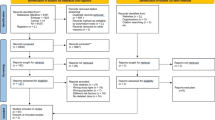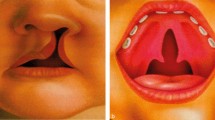Abstract
Design
This was a national population-based case-control study in Norway.
Case and control selection
Cases consisted of all newborn infants born from 1996–2001 who had been referred for surgical treatment of a cleft [either cleft lip with or without cleft palate (377 children) or cleft palate only (196 children)]. Controls (763) were a randomly selected at an average of four per 1000 live births (identified through the medical birth registry of Norway).
Data analysis
Data were collected using questionnaires. Crude odds ratios (OR) were calculated and adjustments for potential confounders (diet and multivitamins, mother's education, mother's employment during early pregnancy, smoking, alcohol consumption, and year of baby's birth) were made.
Results
Folic acid supplementation during early pregnancy (400 μg/day) was associated with a reduced risk of isolated cleft lip with or without cleft palate after adjustment for multivitamins, smoking, and other potential confounding factors [adjusted OR, 0.61; 95% confidence interval (CI), 0.39–0.96]. Independent of supplements, diets rich in fruits, vegetables and other high-folate-containing foods reduced the risk somewhat (adjusted OR, 0.75; 95% CI, 0.50–1.11). The lowest risk of cleft lip was among women who ate folate-rich diets who also took folic acid supplements and multivitamins (adjusted OR, 0.36; 95% CI, 0.17–0.77). Folic acid provided no protection against cleft palate alone (adjusted OR, 1.07; 95% CI, 0.56–2.03).
Conclusions
Folic acid supplements during early pregnancy seem to reduce the risk of isolated cleft lip (with or without cleft palate) by about a third. Other vitamins and dietary factors may provide additional benefit.
Similar content being viewed by others
Log in or create a free account to read this content
Gain free access to this article, as well as selected content from this journal and more on nature.com
or
References
Lumley J, Watson L, Watson M, Bower C . Periconceptional supplementation with folate and/or multivitamins for preventing neural tube defects. Cochrane Database Syst Rev 2001; issue 3.
Author information
Authors and Affiliations
Additional information
Address for correspondence: AJ Wilcox, Epidemiology Branch, National Institute of Environmental Health Sciences, National Institutes of Health, Durham NC 27709, USA. E-mail: wilcox@niehs.nih.gov
Wilcox AJ, Lie RT, Solvoll K, et al. Folic acid supplements and risk of facial clefts: national population based case–control study. Br Med J 2007; 334(7591):433–434
Rights and permissions
About this article
Cite this article
O'Neill, J. Do folic acid supplements reduce facial clefts?. Evid Based Dent 9, 82–83 (2008). https://doi.org/10.1038/sj.ebd.6400600
Published:
Issue date:
DOI: https://doi.org/10.1038/sj.ebd.6400600
This article is cited by
-
Malocclusion, Mastication and the Gastrointestinal System
Journal of Orofacial Orthopedics / Fortschritte der Kieferorthopädie (2010)



